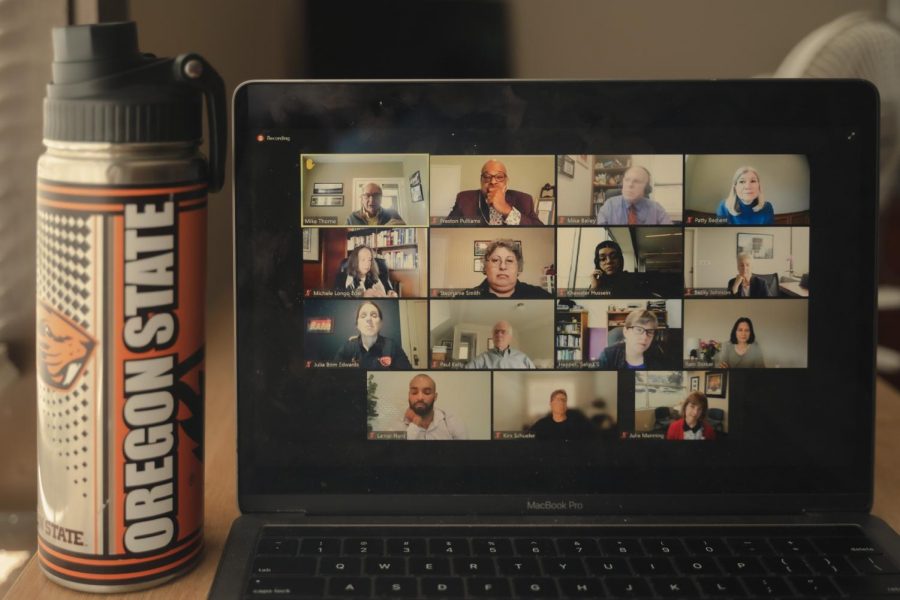OSU Board of Trustees moves toward open presidential election process
May 22, 2021
The Oregon State University Board of Trustees met May 21 to reflect on the search process for former OSU president F. King Alexander, and how to improve on this process moving forward.
Following Alexander’s resignation in April over criticism of his alleged mishandling of Title IX investigations at Louisiana State University, the board met to discuss what they wanted to improve in the search for a new president.
Kirk Schueler, vice president of the board, believes that the lack of community engagement in the election process was something that needs to be improved in the hiring process for the next president.
“I believe there were many aspects of the process from beginning to end that were done very well. I think what my conclusion is, is what was missing was the engagement opportunity for the rest of the OSU community,” Schueler said. “Whatever we do, I think we have to increase OSU community engagement in the process.”
Schueler said he felt that Alexander wasn’t able to successfully garner much support from the community of OSU, partly because of how the closed structure of the hiring process alienated OSU faculty and community.
Preston Pulliums, member of the board, wants to encourage community involvement in the hiring process.
“There were definitely people who felt that some faculty and staff were left out of the 2019 process,” Pulliums said.
To counteract this, members of the board supported the idea of an open search process for the next president.
The board has not conclusively defined what this open search process will entail. Paul Kelly, leader of the discussion, provided a general definition of an open election.
To the board, an open election involves the search committee narrowing down a pool of potential candidates to two or three, who then would come to the campus and talk with faculty and members of the community. Although the finalist candidates would be available to the public, the board would still make the ultimate decision on which candidate to hire. The board is the only entity with the authority to hire the president.
Board Chair Rani Borkar released a statement via email on Friday afternoon regarding the decision to hold an open election.
“It is the board’s intention that this would entail announcing finalists, providing an opportunity for broad community engagement with finalists and soliciting feedback on finalists before we make our decision,” Borkar said.
Kelly wanted to reiterate that the board wasn’t planning on making any final decisions about the search process. Instead, the purpose of this discussion was to reflect on how the board could improve in the search process of the next president.
“I don’t think our goal today is to basically say, ‘here’s our search process for the next president’,” Kelly said. “In the early October, late September meeting, the real search will kick off in earnest.”
Borkar said opening the election process is something that should take time, as the board deliberates on specific details within the next few months.
“I think the good news is we have time,” Borkar said. “We have the summer to work through. And in the meantime, we have a great interim president in place.”










































































































